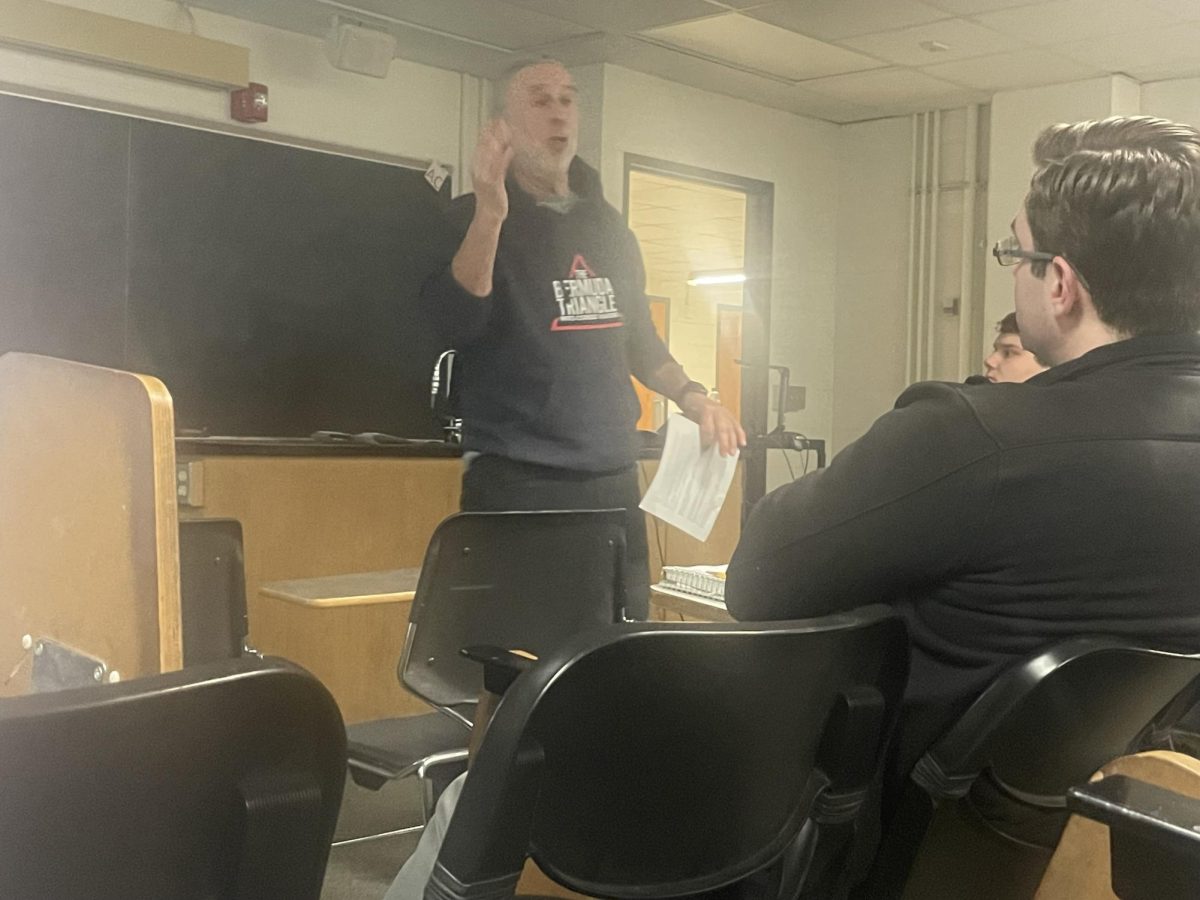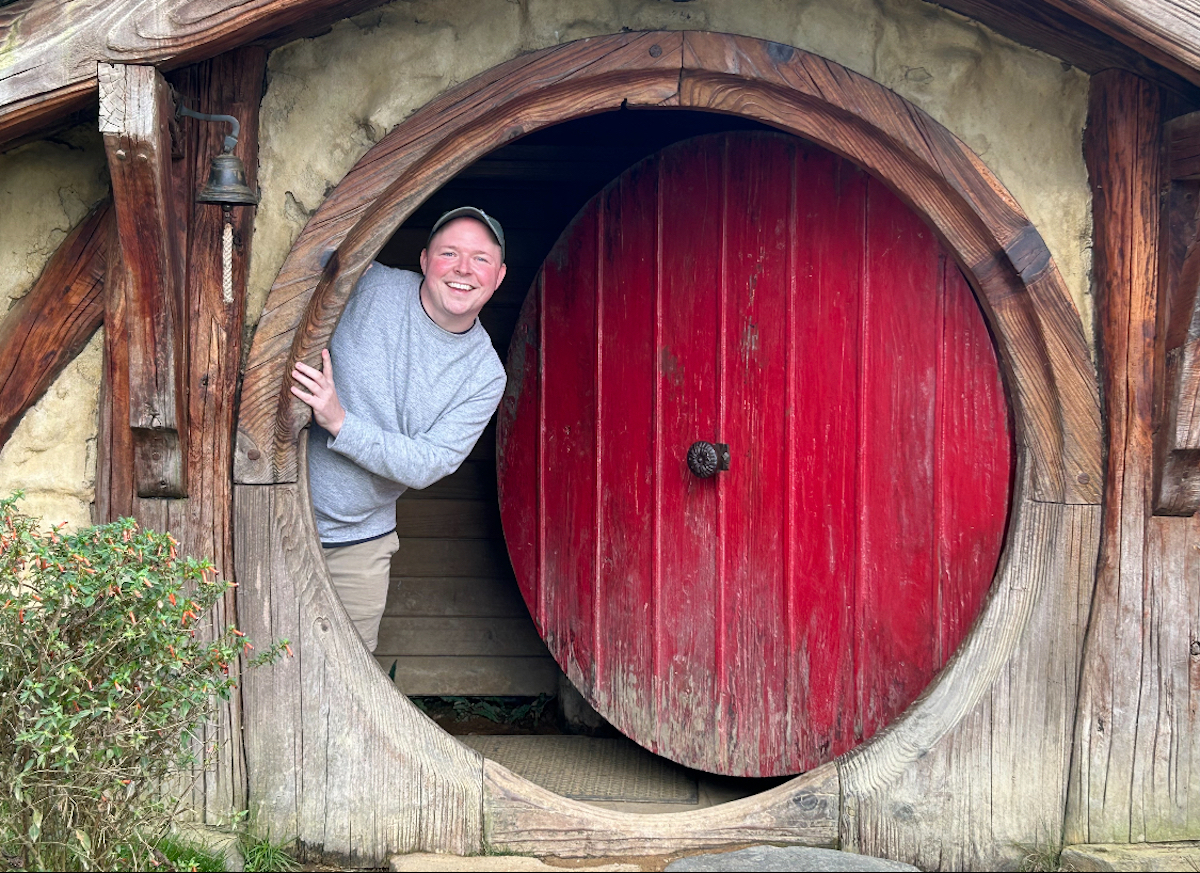Kirk Wolfinger, an Emmy and Peabody Award-winning director, talked to students and staff on Friday, March 1, with the Science Talk Series. Wolfinger discussed: The Art of Telling the Story: Effective Science Communication. The event was held in Phillips 117 and hosted by geography professor Harry Jol.
The night began with an introduction from Jol describing Wolfingers’ background. Throughout his career, Wolfinger has focused on science-based programming, working on 27 projects with Nova, the PBS-based science network program.
He began by creating content on submarines in the ’90s and since then has created various projects. He has worked on projects focused on deep-water diving, WWII ships and Holocaust graves.
Wolfinger discussed a project he worked on with Jol. Through grants, Jol was able to fund a project with students from UW-Eau Claire to investigate Holocaust graves in Eastern Europe.
“Holocaust Escape Tunnels,” released in 2017, discusses this history and focuses on Jols’ research and was directed by Kirk Wolfinger.
Wolfinger has found his way into the world of science through storytelling, and with such, has worked with scientists to bring their stories to life.
He described his journey as the “backward way,” finding film first and science after. He discussed throughout the evening how important it is to make science accessible and interesting to an audience.
“Telling a story is central to your work, especially as a scientist, because if you can’t communicate that what you’re doing is interesting then nobody’s going to pay attention to you,” Wolfinger said.
He discussed the importance of making ideas relatable, stating that scientists struggle to tell stories. Wolfinger talked about the elements of storytelling; excitement, energy, a developed world, characters and suspense.
Passion was another concept discussed in the conversation. Wolfinger discussed in great detail how important it is. Throughout his talk, he described how he often ”gets lost” in his passions. He discussed a film that he had recently produced, in which Wolfinger filmed 375 hours of footage for a 90-minute show.
Audience is also a key part of Wolfingers’ thinking. He made it clear how important realizing who your audience is and focusing on it is.
“When I make a film, I’m thinking, who’s my audience? That’s the first question I have to ask,“ Wolfinger said.
Wolfinger described how even non-scientists can be impacted. As a director, he focused on this perspective, but the audience was interdisciplinary, with students from all majors. Although this speech was tied to science, his principles apply to all.
“No matter what you do, you need to learn to tell stories,” Wolfinger said.
The science series will hold more events, with the Banff Film Festival occurring on April 21.
Leick can be reached at leickm8917@uwec.edu.








